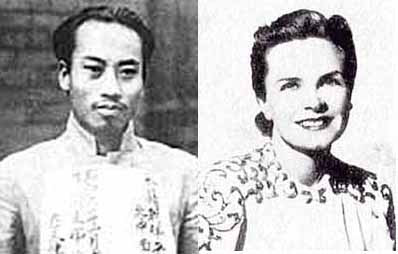
Most of the history I’ve been exposed to in an academic setting has been centered on the United States, but this quarter I’m taking a class on colonization in Asia and the Pacific, which has given me some awareness for a few of the important cultural and political conflicts in that region.
This past week, we read the first five chapters from the Song of Ariran, a book by American journalist Nym Wales. Wales reports on Korea’s movement towards independence against the imperialist dominion of Japan in the 1930s. According to my professor, “Nym Wales” is really a pseudonym for her real name: Helen Foster Snow, whose work was pivotal in bringing social change and awareness to China and Korea in the 1930’s. Most of her information comes through Kim San, the foremost Korean revolutionary leader and delegate to the Chinese Communist party. No one knows much about Kim San since he lived in seclusion high in the mountains above Yenan, China, and furthermore because “Kim San” was one of many pseudonyms as well. Nym Wales and Kim San worked together in secrecy to exchange information that later contributed to a greater American-Chinese understanding while also bolstering Korea’s efforts towards a solidified national identity.
For me, this subject is shrouded in mystery. The careful tactics for avoiding government attention, the noms-de-guerre, the silent but creeping development towards action in the face of oppression…all of it is intriguing, and yet in American schooling we don’t hear much about these events. So hopefully this little tidbit of what had been obscured information for me can inspire some fruitful Internet searches about the political dynamics of East Asia and the small but vastly important actions of one bold, American reporter and her covert, but powerful Korean counterpart in the midst of foreign war. Nym Wales writes:
“Here was a man who had been hammered and shaped in the white heat of the great tragedies that have molded recent history in China and Korea and who had emerged from the ordeal, not only as a steel instrument of tempered will and determination, but as a sentient being of feeling and consciousness. I determined that I must not fail to learn more about him. The problem was how to win the confidence of this aloof, reserved personality. He was not likely to volunteer any personal information about himself. Such active revolutionaries are seldom free to tell their story, and I was not a little afraid to ask, for life and death might hang on the careless handling of the secrets of men whose lives are spent in underground activities. The offense is sometimes the best tactic.”
On Kim San’s character, The Song of Ariran: The Life Story of a Korean Rebel